While their tactile feedback and adaptability have won many users over, an aspect that often goes unnoticed is the security embedded within their design. As we dive deeper into the realm of silicone keypads, understanding the importance of security becomes increasingly clear. Don’t underestimate the importance of designing secure silicone keypads. Let’s explore how these small but mighty components contribute to overall system security while ensuring peace of mind for users everywhere.
What is a Silicone Rubber Keypad?
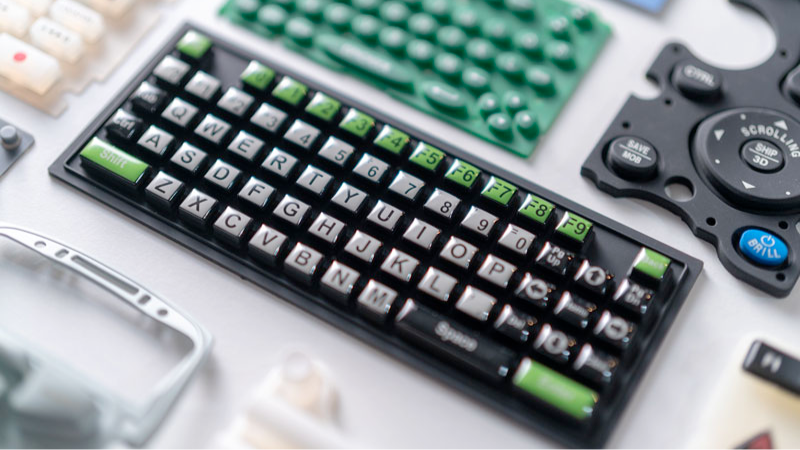
A silicone rubber keypad is a versatile and durable interface solution crafted from silicone rubber material. It serves as a tactile switch for various electronic devices, facilitating user interaction by completing a circuit on a printed circuit board when depressed.
These keypads are renowned for their resilience, providing consistent tactile feedback, and they possess inherent resistance to environmental adversities, such as moisture and temperature variations, making them ideal for a wide range of applications from remote controls to industrial panels.
The Importance of Keypads in Security
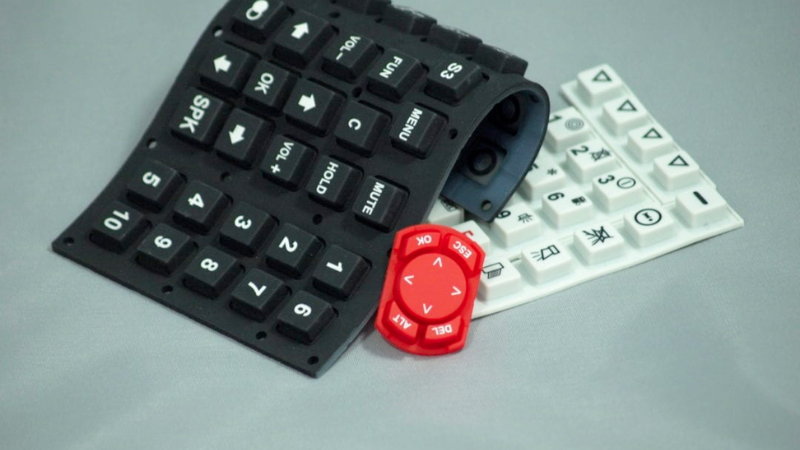
In an age where electronic devices dominate our daily routines, from personal gadgets to medical devices, the interfaces we use to interact with these devices hold paramount importance. Silicone rubber keypads have become a popular choice, and their significance in ensuring security is undeniable.
Firstly, these keypads serve as the first point of contact between the user and the device, often requiring input codes or sequences to grant access. Whether it’s entering a PIN on an ATM or adjusting settings on medical devices, the keypad’s role in safeguarding sensitive information is critical.
Moreover, with advancements in technology, modern silicone rubber keypads have incorporated features like laser etching, which adds another layer of security. Laser etching allows for more defined and durable symbols on keys, ensuring they don’t wear off with time, and keeping the interface legible and secure.
Furthermore, the conductive-coated pill and carbon pill embedded within some silicone keypads provide a swift tactile response, ensuring users get immediate feedback upon entering data. This immediate tactile feedback can prevent unauthorized or unintended inputs, adding an additional layer of security.
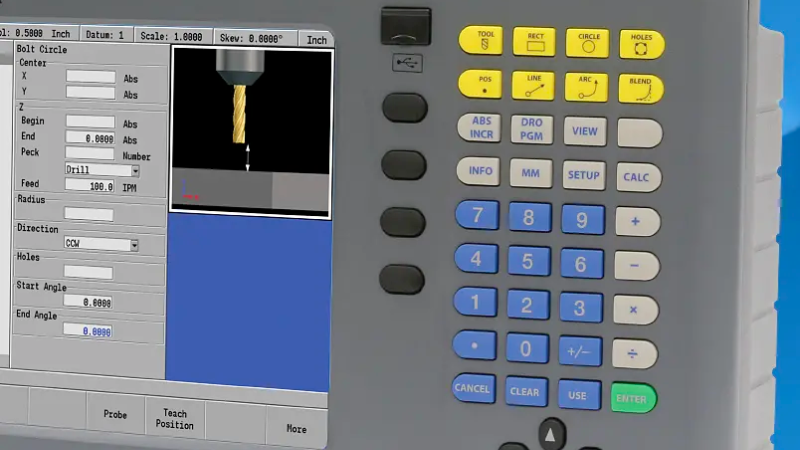
Lastly, the integration of these keypads with printed circuit boards or other electronic devices has been meticulously crafted to ensure a seamless and secure connection. Misalignments or lapses in this integration can result in security breaches or malfunctions, underscoring the significance of precision in the design of silicone rubber keypads.
In essence, while the softness and flexibility of silicone rubber material are evident, its role in fortifying the security of our electronic devices remains an unsung strength.
Benefits of Silicone Rubber Keypads for Security Systems
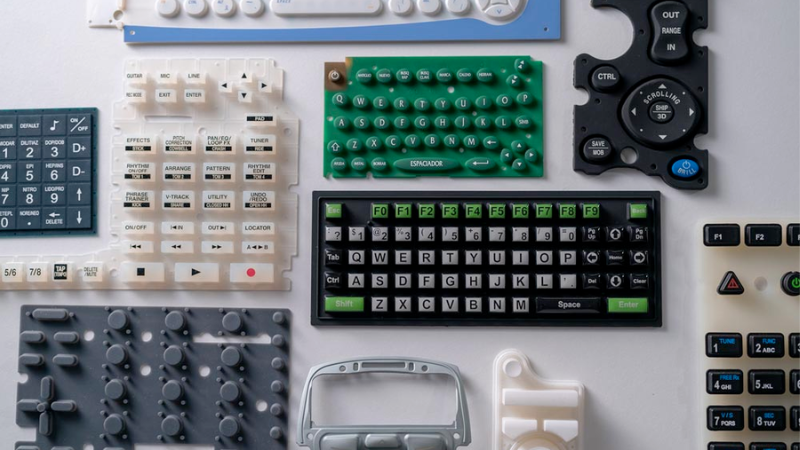
Security systems play a pivotal role in ensuring the safety of assets, property, and, most importantly, lives. Therefore, the components used in these systems, including keypads, must be of the highest quality and reliability. Silicone rubber keypads, with their inherent properties and design versatility, offer numerous advantages when integrated into security devices. Here’s a closer look at these benefits:
- Durability and Longevity: Made from a silicone rubber material, these keypads are resilient to wear and tear, even in high-usage situations. Their robust nature ensures that they remain functional over extended periods, offering a longer lifespan than conventional keypads.
- Tactile Feedback: One of the standout features of silicone rubber keypads is the tactile response they provide. Users receive instant tactile feedback, ensuring that the intended input has been registered. This is crucial in high-pressure situations where security systems need immediate activation or deactivation.
- Versatility in Design: Soft silicone rubber allows for a wide range of designs and customization. Whether it’s laser etching for clearer symbols or integrating a carbon pill for improved electrical switch capabilities, the possibilities are vast.
- Integration with Other Electronic Devices: Silicone keypads can seamlessly integrate with a range of electronic devices. Be it a complex printed circuit board or simpler electronic systems, these keypads can be tailored to fit perfectly, ensuring optimum performance.
- Resistant to External Factors: Security systems often need to be operational in varied conditions. Silicone rubber keypads are inherently resistant to moisture and contaminants, making them ideal for outdoor security panels or medical devices that require regular sanitization.
- Safety: With the possibility of embedding conductive coated pills, silicone rubber keypads can ensure a secure electrical connection, crucial for the accurate functioning of security systems.
In essence, the integration of silicone rubber keypads into security systems offers a blend of reliability, functionality, and user-friendly features. Their compatibility with a plethora of other electronic devices, coupled with their resilience, makes them an excellent choice for bolstering security infrastructure.
How Can Silicone Keypads Help With Security?
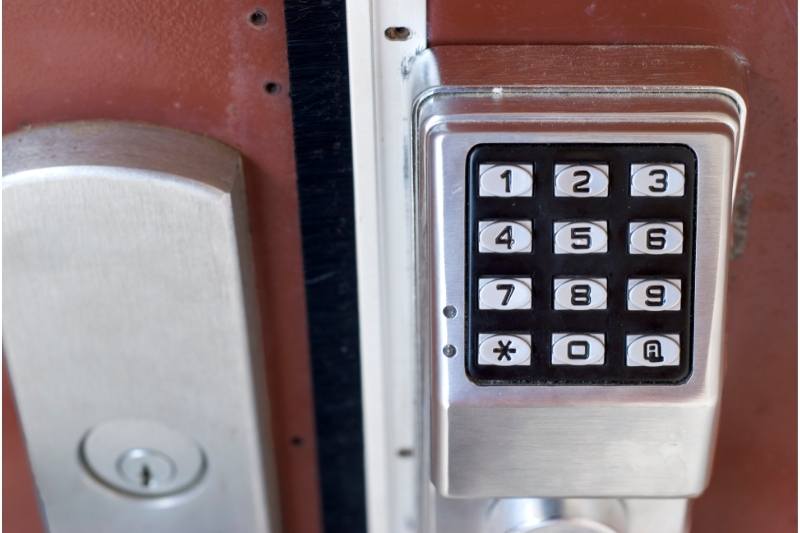
Silicone keypads play a crucial role in enhancing security measures. They offer several features and functionalities that contribute to the overall protection of sensitive information.
Integration with Encryption Technology
Silicone keypads, especially those used in sensitive electronic devices, can seamlessly work with encryption technologies. When a user enters data through a keypad made from a silicone rubber material, the data can be instantly encrypted, ensuring that even if intercepted, it remains unintelligible. This synergy between silicone rubber keypads and encryption is paramount, especially in devices that handle financial transactions or confidential information.
Secure PIN Entry and Password Input
The tactile response offered by silicone rubber keypads ensures that users get immediate feedback when they press a key. This, combined with features like laser etching, ensures clear, legible symbols that reduce the chance of entering incorrect PINs or passwords. Additionally, the soft silicone rubber reduces the noise during keypresses, making it harder for eavesdroppers to determine the keys pressed, further enhancing security during PIN or password input.
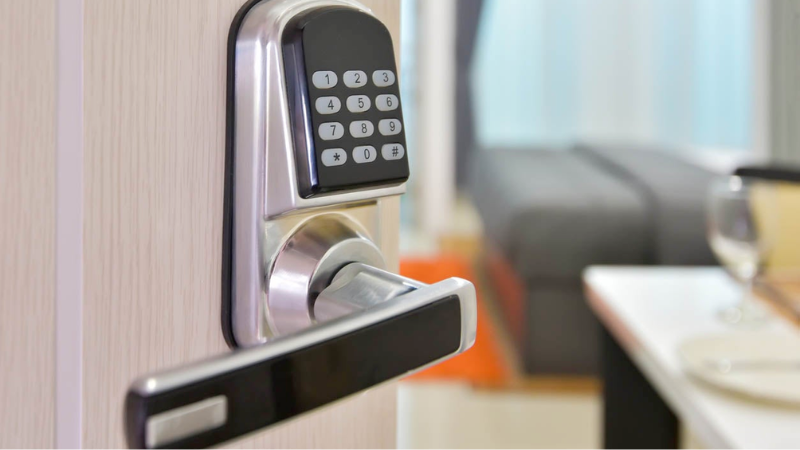
Anti-tampering Features
Silicone keypads can be designed with inherent anti-tampering features. For instance, integrating a carbon pill can detect undue pressure, suggesting an attempt to breach the keypad physically.
Also, the conductive-coated pill can serve as an electrical switch to trigger an alarm or shut down the device when tampering is detected. The resilience of silicone rubber material also means that the keypads are tough to alter or manipulate without evident signs of tampering.
Incorporating silicone rubber keypads into security-focused devices is a strategic decision. Their adaptability, combined with the ability to embed advanced security features, makes them an invaluable asset in the continuous battle to keep data and access points safe and secure.
Usability of Accessible Custom Keypads
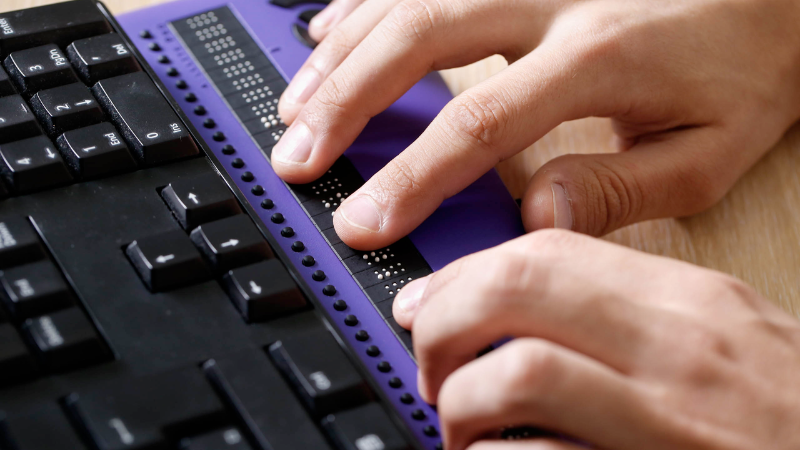
In today’s world, inclusivity in technology isn’t just a trend—it’s a necessity. As electronic devices permeate every aspect of our daily lives, ensuring that everyone, including individuals with disabilities, can access and use them efficiently becomes imperative. One of the primary touchpoints in many devices is the keypad. Custom keypads designed with accessibility in mind not only boost the user experience for those with disabilities but also ensure enhanced security for all users.
Tactile Feedback
A prominent feature of silicone rubber keypads is their tactile response. For individuals with visual impairments, this feedback can confirm the press of a key. Furthermore, features such as laser etching can be used to provide Braille on the keys, making them more user-friendly for visually impaired users.
Personalized Entry Sequence
For those with cognitive challenges, remembering a complex password or PIN can be a daunting task. Custom keypads can be designed to allow users to set personalized entry sequences that are intuitive to them, such as a familiar tune or pattern.
Anti-tampering Features for Sensitive Information
As discussed earlier, features like the carbon pill can detect undue pressure. For those with motor disabilities, unintentional hard presses can be common. These anti-tampering features ensure that any unintended force or attempt to physically manipulate the keypad triggers security protocols.
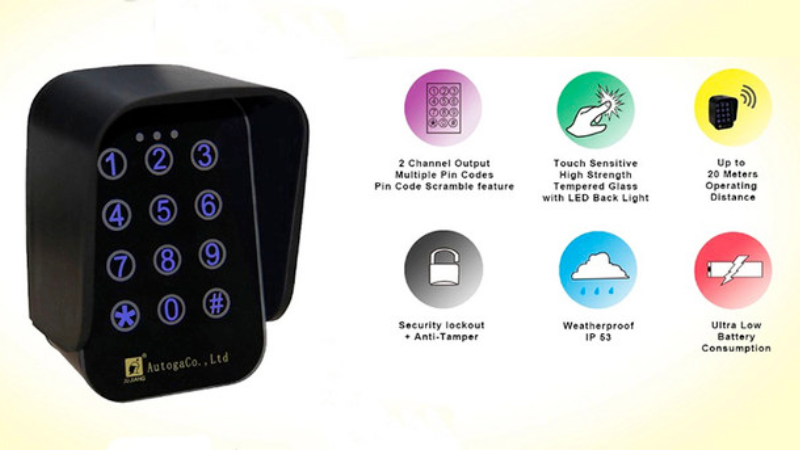
Secure Profiles for Multiple Users
In settings where multiple users might access the same device, like medical devices in hospitals, custom keypads can be programmed to recognize input patterns specific to individual users. This way, even if someone tries to mimic an entry pattern, the device remains secure unless the exact sequence is entered.
The usability of accessible custom keypads isn’t just about ease of use; it’s about ensuring that every individual, regardless of their physical or cognitive abilities, can use devices securely and efficiently. By considering the unique needs and challenges faced by individuals with disabilities, custom keypads can truly become tools of empowerment and security.
Conclusion
In the fast-paced evolution of technology, silicone rubber keypads have emerged as more than just functional components of electronic devices—they’ve become crucial to ensuring inclusivity, security, and enhanced user experiences.
Upgrade Your Device Security with Hongju’s Silicone Rubber Keypads!
Looking to enhance security and provide an inclusive experience for users? Hongju specializes in crafting top-notch silicone keypads designed for optimum tactile feedback and unmatched security features. Don’t compromise; choose the best for your electronic devices.